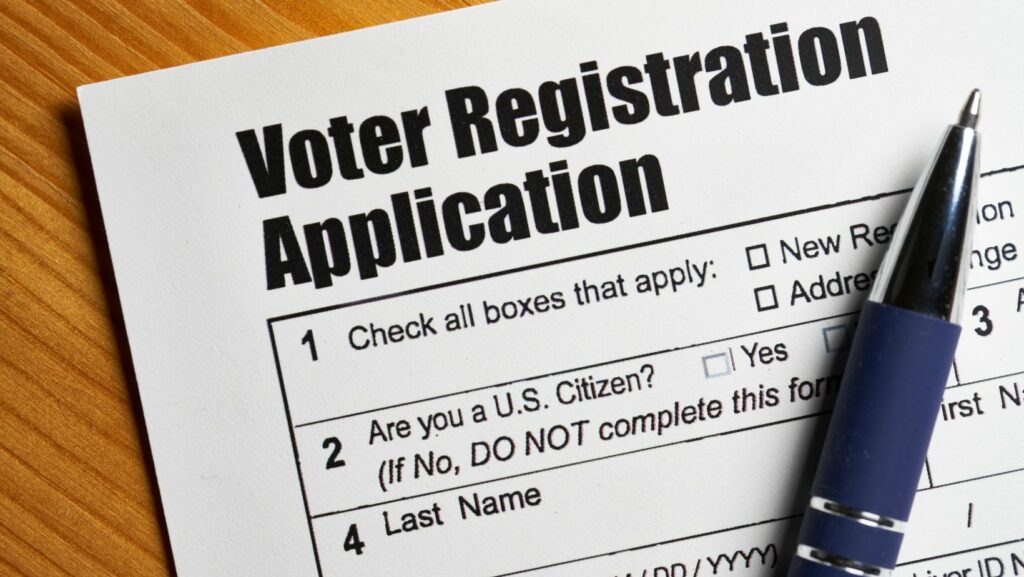In today’s digital age, privacy concerns are at the forefront of public discourse, especially when it comes to sensitive information like voter registration records. Many people wonder just how much of their personal data is accessible and to whom. Voter registration information, often considered a public record, plays a crucial role in maintaining transparent and fair elections, yet it raises questions about privacy and accessibility.
Understanding what voter registration information is publicly available can empower individuals to make informed decisions about their privacy. While these records ensure electoral integrity by confirming voter eligibility and preventing fraud, they also reveal details such as names, addresses, and voting history. This balance between transparency and privacy is a delicate one, prompting ongoing discussions about the best practices in managing public records. As technology evolves, so too do the methods for securing and accessing this vital information, making it an ever-relevant topic for voters and policymakers alike.
Voter Registration Information Public Record
 Voter registration information plays a pivotal role in the democratic process by ensuring transparency. Legal considerations play a crucial role in determining the public accessibility of voter registration information. Various laws govern the disclosure and protection of these records to balance transparency and privacy concerns. Understanding what makes these records public aids in addressing privacy concerns.
Voter registration information plays a pivotal role in the democratic process by ensuring transparency. Legal considerations play a crucial role in determining the public accessibility of voter registration information. Various laws govern the disclosure and protection of these records to balance transparency and privacy concerns. Understanding what makes these records public aids in addressing privacy concerns.
Voter registration is the process of enrolling eligible citizens to vote in election. By making these records public, confidence in the integrity of the electoral process increases. It involves collecting specific details such as name, address, and sometimes party affiliation. These records verify eligibility and facilitate the election process.
Purpose Of Public Voter Records
Public voter records improve election transparency. They allow election officials to manage voter rolls and prevent fraud. By making these records public, confidence in the integrity of the electoral process increases.
Who Can Access These Records?
 Access to voter registration records varies by jurisdiction. Generally, government agencies, political parties, and research organizations access these for legitimate purposes. Restrictions apply to protect sensitive data from misuse.
Access to voter registration records varies by jurisdiction. Generally, government agencies, political parties, and research organizations access these for legitimate purposes. Restrictions apply to protect sensitive data from misuse.
Public voter records typically include names, addresses, and voting history. Some regions may include political party affiliation. Sensitive data like Social Security numbers and driver’s license numbers remain confidential.
Legal Considerations
Legal considerations play a crucial role in determining the public accessibility of voter registration information. Various laws govern the disclosure and protection of these records to balance transparency and privacy concerns.
Regulations And Protections
Regulations define which voter registration details are public while setting parameters to safeguard personal data. The National Voter Registration Act (NVRA) mandates states to maintain accurate and accessible voter lists but protects sensitive information from being publicized. State-specific laws further outline access limitations and stipulate which entities can access the records. Protections include restricting the release of Social Security numbers, driver’s license numbers, and exact birthdates to prevent identity theft and misuse. Voting officials, tasked with managing these records, must adhere to these regulations ensuring compliance and confidentiality.
Potential Drawbacks
 While public access to voter registration information plays a crucial role in promoting electoral transparency and integrity, it also presents significant privacy challenges. The balance between transparency and protecting personal data remains a contentious issue, with ongoing debates about how best to safeguard sensitive information. As technology continues to evolve, ensuring the security of voter records is more critical than ever. The risk of identity theft and misuse of personal details underscores the need for robust legal frameworks and vigilant management by voting officials. It’s essential for stakeholders to continuously evaluate and adapt policies to address these concerns while maintaining public trust in the electoral process.
While public access to voter registration information plays a crucial role in promoting electoral transparency and integrity, it also presents significant privacy challenges. The balance between transparency and protecting personal data remains a contentious issue, with ongoing debates about how best to safeguard sensitive information. As technology continues to evolve, ensuring the security of voter records is more critical than ever. The risk of identity theft and misuse of personal details underscores the need for robust legal frameworks and vigilant management by voting officials. It’s essential for stakeholders to continuously evaluate and adapt policies to address these concerns while maintaining public trust in the electoral process.



